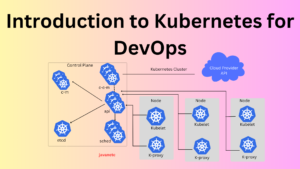Introduction
In the dynamic realm of Java programming, two powerful constructs, Anonymous Inner Classes, and Lambda Expressions, stand out for their ability to enhance code flexibility. Both serve the purpose of implementing functional interfaces, but they differ significantly in their syntax, use cases, and behavior. Let’s delve into a detailed comparison to uncover the distinctions between these two essential features.
Table of Contents
Anonymous Inner Class: A Closer Look
Definition and Purpose: An Anonymous Inner Class is essentially an inner class without a name, instantiated at the point of creation. It shines when you need a one-time-use class, particularly when overloading methods of a class or interface is necessary without the need to create a dedicated subclass.
Use Cases:
- Creating implementation classes for listener interfaces, often employed in graphics programming.
- Instantiating an object with added functionalities, especially when subclassing seems impractical.
Syntax:
Test t = new Test() {
// Data members and methods
public void test_method() {
// Implementation
}
};
Example:
interface Age {
int x = 21;
void getAge();
}
class AnonymousDemo {
public static void main(String[] args) {
Age obj = new Age() {
public void getAge() {
System.out.print("Age is " + x);
}
};
obj.getAge();
}
}
Output:
Age is 21
Characteristics:
- Can extend abstract and concrete classes.
- Allows the implementation of interfaces with any number of abstract methods.
- Can declare instance variables.
Memory and Compilation:
- Generates a separate
.classfile at compile time. - Memory allocation occurs on-demand when creating an object.
Lambda Expressions: Embracing Conciseness
Definition and Purpose: Lambda Expressions, introduced in Java 8, are concise and expressive representations of instances of functional interfaces. They facilitate treating functionality as a method argument and bring a functional programming paradigm to Java.
Use Cases:
- Implement a functional interface using a single abstract method.
- Simplifying code, especially in scenarios involving event listeners.
Syntax:
FuncInterface fobj = (int x) -> System.out.println(2 * x);
Example:
interface FuncInterface {
void abstractFun(int x);
default void normalFun() {
System.out.println("Hello");
}
}
class Test {
public static void main(String args[]) {
FuncInterface fobj = (int x) -> System.out.println(2 * x);
fobj.abstractFun(5);
}
}
Output:
10
Characteristics:
- Cannot extend abstract or concrete classes.
- Limited to implementing interfaces with a single abstract method.
- Does not allow the declaration of instance variables; variables act as local variables.
Memory and Compilation:
- No separate
.classfile generated at compile time. - Resides in the permanent memory of the JVM.
Table of Difference:
| Feature | Anonymous Inner Class | Lambda Expression |
|---|---|---|
| Nature | Class without a name | Method without a name (anonymous function) |
| Inheritance | Can extend abstract and concrete classes | Cannot extend abstract or concrete classes |
| Interface Implementation | Can implement an interface with any methods | Can implement an interface with a single method |
| Variable Declaration | Allows declaration of instance variables | No instance variable declaration allowed |
| Instantiation | Can be instantiated | Cannot be instantiated |
| “this” Reference | Refers to the current anonymous class object | Refers to the current outer class object |
| Handling Methods | Suitable for handling multiple methods | Best choice for handling a single interface method |
| Compilation Output | Generates a separate .class file | No separate .class file generated |
| Memory Allocation | On-demand when creating an object | Resides in permanent memory of the JVM |
Conclusion
In the vast landscape of Java programming, choosing between Anonymous Inner Classes and Lambda Expressions depends on the specific requirements of your code. While Anonymous Inner Classes offer flexibility and versatility, Lambda Expressions bring concise and expressive code to the forefront. Understanding the nuances between these constructs empowers developers to make informed decisions, ultimately enhancing the quality and readability of their code.



